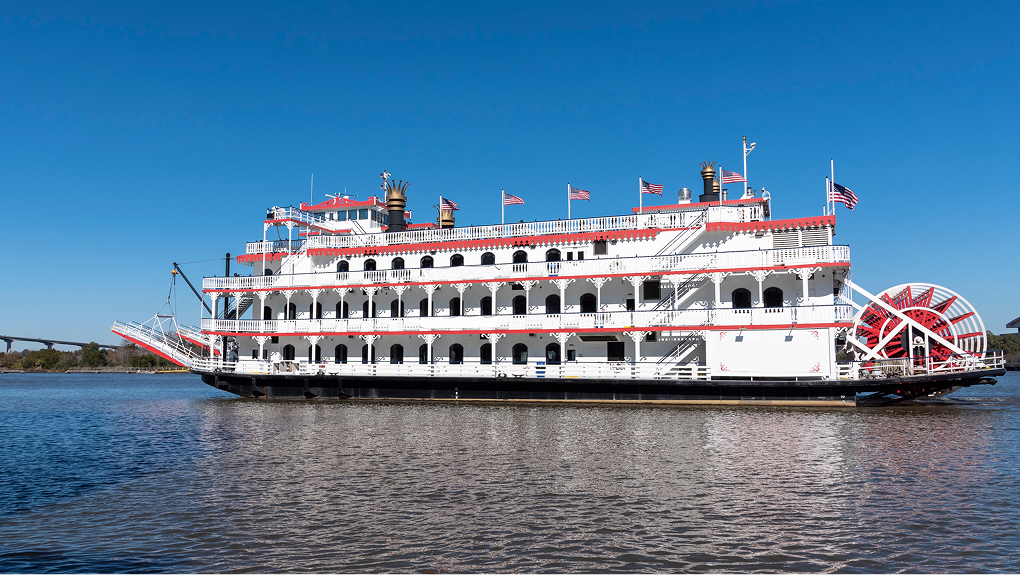“I’d recommend them to anyone working offshore. They fought hard and got me a settlement that helped cover my medical bills and lost wages.”



The rivers and waterways of the Gulf Coast are vibrant hubs of activity, hosting everything from historical tour boats and bustling casino vessels to vital commercial barges and tugs. While offering unique experiences and essential transportation, these riverboats also present inherent dangers. When negligence leads to a serious accident, the consequences for passengers, crew, and workers can be devastating. If you or a loved one has suffered an injury in a riverboat accident, you need legal representation from a firm deeply rooted in maritime law. At our firm, our experienced maritime injury lawyers are dedicated to protecting the rights of those harmed on navigable rivers, ensuring they receive the full compensation necessary for their recovery and future.
Riverboat environments present distinct challenges compared to open ocean travel. Strong currents, narrow channels, locks, unpredictable water levels, and heavy commercial traffic all contribute to unique accident risks.
Riverboat accidents can arise from various factors, often stemming from operator negligence, inadequate maintenance, or dangerous conditions. Common causes include:
Due to the nature of riverboat environments and potential for severe impacts or falls, injuries can be catastrophic:
Accidents on rivers often fall under a specific area of law known as maritime law or admiralty law. Determining which laws apply to your situation – federal maritime law or state personal injury law – is crucial and depends on the specific circumstances of the accident.
For an accident to fall under federal maritime law jurisdiction, it must occur on “navigable waters.” For rivers, this generally means waterways that are used, or capable of being used, in interstate or foreign commerce. Most major rivers on the Gulf Coast, like the Mississippi, Mobile, or Apalachicola, are considered navigable, bringing accidents occurring on them under maritime jurisdiction.
If you were injured while working as a crew member on a commercial riverboat (e.g., a tugboat, barge, casino boat, or tour boat), you are likely considered a “seaman” and fall under the protections of the Jones Act. This federal law allows injured seamen to sue their employers for negligence that caused or contributed to their injuries. This can include negligence related to unsafe equipment, insufficient training, or an unseaworthy vessel. Under the Jones Act, you may recover damages for medical expenses, lost wages, pain and suffering, and more. Additionally, injured seamen are generally entitled to “maintenance and cure,” covering their daily living expenses and medical care during recovery, regardless of fault.
If you were injured on or near a riverboat, but not as a member of the vessel’s crew (e.g., a longshoreman, stevedore, or ship repairer working in a port or shipyard), you may be covered by the Longshore and Harbor Workers’ Compensation Act (LHWCA). This federal workers’ compensation scheme provides benefits for medical expenses, lost wages, and vocational rehabilitation without the need to prove employer fault.
Passengers on recreational riverboats, tour boats, or casino boats who suffer injuries due to negligence may bring a claim under General Maritime Law. This body of law imposes a duty of reasonable care on vessel owners and operators to ensure the safety of their passengers. If their negligence caused your injury, you could seek compensation for medical bills, lost income, pain and suffering, and other damages.
Riverboat accident cases are rarely straightforward. They involve unique legal principles, challenging investigations, and often require taking on large corporations and their insurers.
Our legal team will act swiftly to:
We understand how to establish the negligence of operators, vessel owners, or other parties. We also have deep knowledge of the doctrine of unseaworthiness, which holds vessel owners strictly liable for providing a vessel that is reasonably fit for its intended purpose, regardless of fault.
We work closely with medical and economic experts to ensure all your damages are fully accounted for, including:
Prioritize your safety and seek immediate medical attention. Report the incident to the vessel’s crew or owner and local authorities (e.g., Coast Guard, local marine patrol). If possible, document the scene with photos or videos. Avoid giving official statements or signing documents without consulting an attorney.
Generally, the statute of limitations for maritime personal injury claims is three years. However, specific circumstances, such as cruise passenger tickets or claims against governmental entities, may have significantly shorter notice periods and filing deadlines. Contact an attorney immediately to protect your rights.
Under maritime law, a principle called “comparative negligence” often applies. This means that even if you were partially at fault for the accident, you may still be able to recover damages, though your compensation might be reduced by your percentage of fault.
The Jones Act applies to “seamen” – crew members who spend a significant amount of their time working on a vessel in navigation. The LHWCA applies to specific maritime workers who are not seamen, such as longshoremen, harbor workers, and ship repairers, typically working on docks or within a specific distance from navigable waters.
It is highly advisable to consult with an experienced maritime injury attorney before accepting any settlement offer. Companies and their insurers often try to settle claims quickly for less than their true value. An attorney can evaluate the full extent of your damages and ensure you don’t unknowingly waive your rights.
A riverboat accident can be a traumatic experience, leaving you with serious injuries and an uncertain future. You deserve strong legal advocacy to navigate the complexities of maritime law and secure the compensation you need for your recovery. At our firm, our Gulf Coast Riverboat Accident Lawyers have a deep understanding of these specialized cases and are prepared to fight tirelessly on your behalf. We are committed to holding negligent parties accountable and helping you rebuild your life.
Don’t delay. Your legal rights may depend on taking swift action. Contact our experienced team today.
